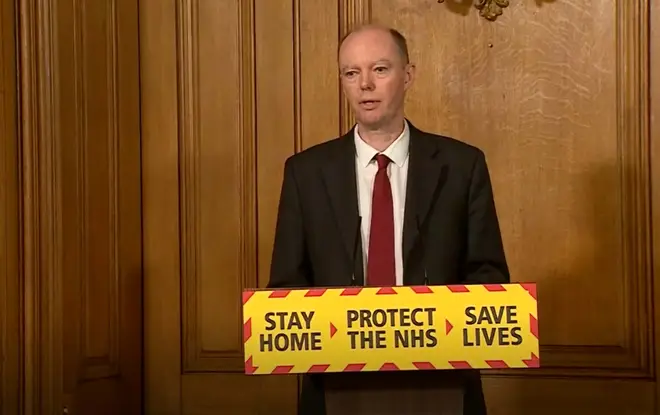
Nick Ferrari 7am - 10am
27 April 2020, 21:34

Chief medic explains Covid-related syndrome seen in UK children
What is the rare coronavirus-related syndrome seen in UK children? And which symptoms should parents look out for? Chief paediatrician explains.
Health experts are looking into reports that children are falling ill with a potentially coronavirus-related syndrome leaving them in need of intensive care, according to the NHS England chief.
Professor Stephen Powis said it was "too early to say" whether there is a link between the Kawasaki-like multi-system inflammatory disease and coronavirus, but chief medical officer Prof Chris Whitty said it was "entirely plausible".
Paediatrician Professor Russell Viner told LBC's Iain Dale that "very small" numbers of children have experienced this rare disease and it is extremely positive that the NHS has picked them up.
"Our health system is joined up so our paediatricians can pick up kind of things in ways that doctors in other countries can't," he said.
"But the really important thing to remember for your listeners is that children generally aren't affected by Covid much at all. Children don't tend to get it as much as adults and when they get it, they tend to have either no symptoms or very mild symptoms," Professor Viner said.

He reiterated that they can get it and get very sick and an "incredibly small number" have died.
Professor Viner told Iain it is currently unclear why children are much less affected by coronavirus than older people but observed that SARS and MERS, the cousins of Covid that are also coronaviruses, have very little effect in children as well.
His advice to parents is to use instinct; if their children are sick in any way, be aware and act as they normally would and alert medical professionals.
"The key message is the NHS is open, bring your child to hospital, talk to NHS 111," he said.
With this particular illness it is "particularly about shock": symptoms include if a child appears to be very quiet, their limbs and peripheries may be cold and blue, and they seem to be shut down peripherally, have a rash, are not responding well and they are clearly quite sick.
Also, potentially there may be tummy pains, he said, not the classic adult symptoms we expect such as a fever and dry cough.